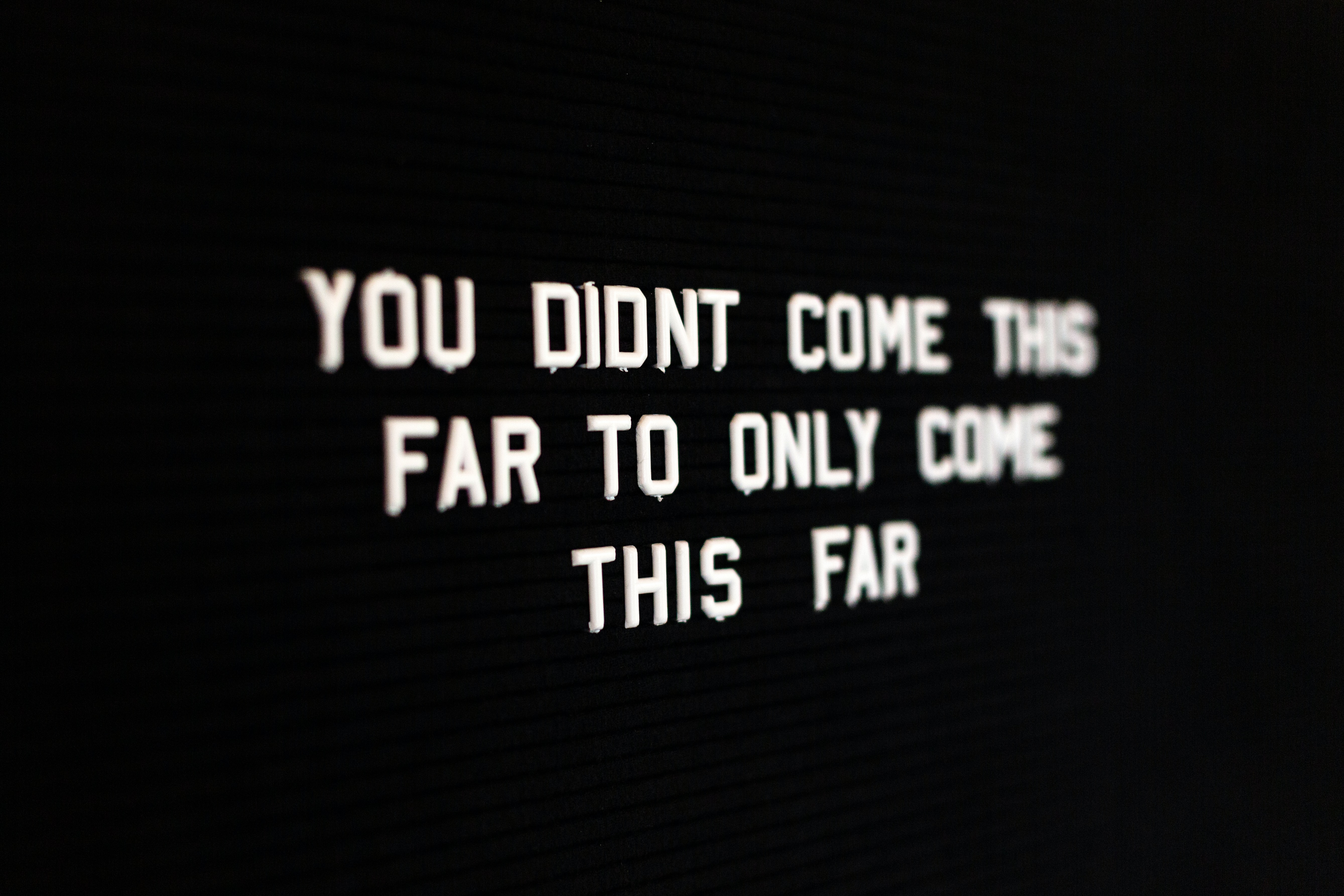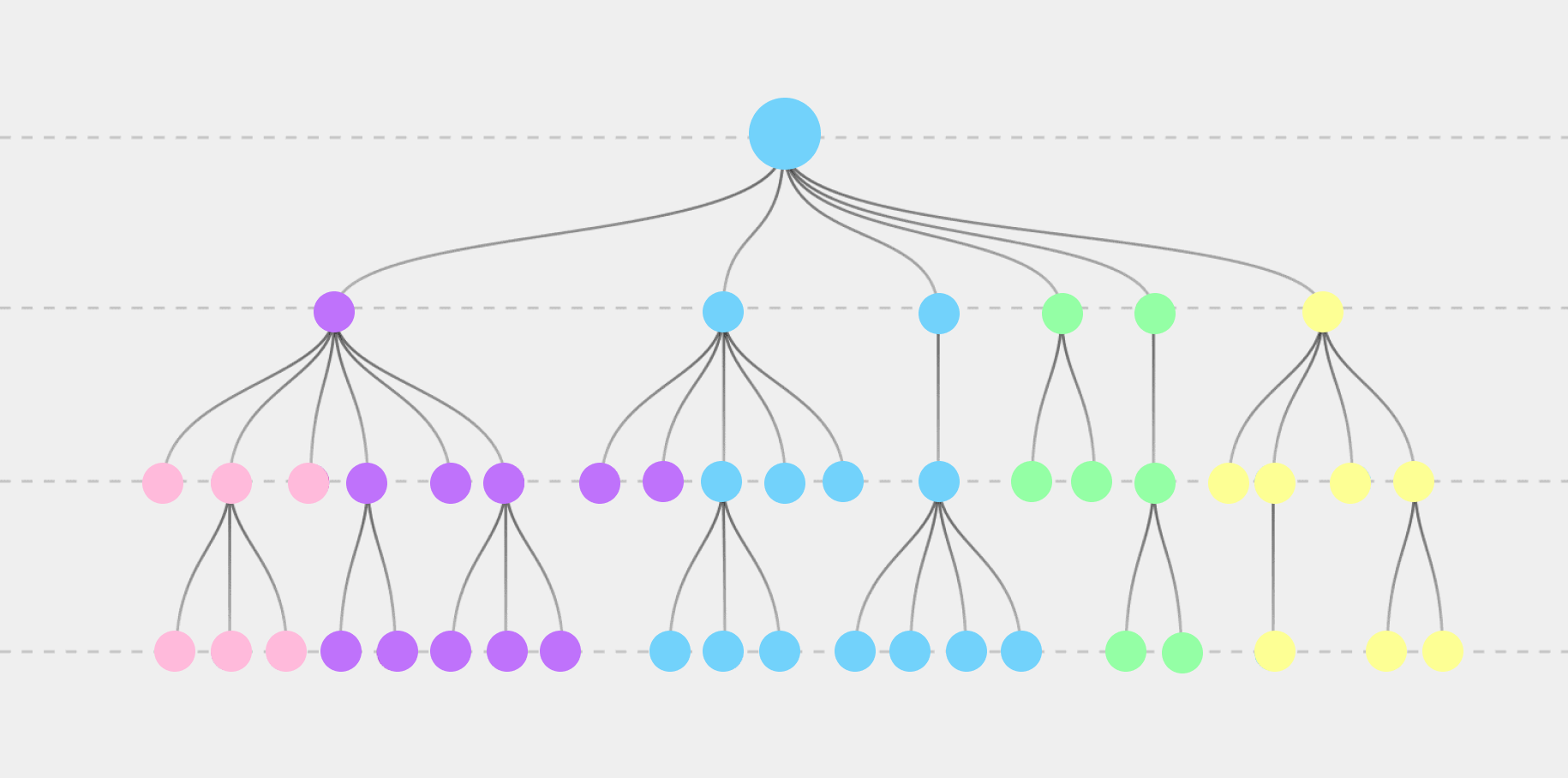What to do if the motivation is over?
Most often, the loss of studying motivation happens due to the fact that a you cannot master some part of the skill/course. Then there is a feeling that you are banging your head against the wall. It's nice to be able to admit it. Being honest with yourself is a cool sign, it says that the situation can be handled.
What helps me when I feel like I'm at a dead end? I use two opposing strategies: "easy win" and "self-testing".
"Easy-win"
I take a step to the side and switch to something else. For example, I recently stumbled upon an area of statistics that I don’t understand. I tried to practice for a day, a second, a third, a fifth, till I realized that I am at a dead end. Then I sat down and made a simple Excel dashboard design visualization. It took only a few hours to create it, but this time allowed to relieve tension. I got an easy win, I realized that I did something, which means I'm not so stupid...
Some people watch movies to switch. This is also a way to get an easy win. If you understand by the middle of the movie how it will all end, then you get that very light dopamine.
But there is a nuance: when a person is distracted for several days from what he has been doing for several months, he most likely won't be able to return to the same point. Roughly speaking, if you were reading a book till the first ten chapters and got stuck on the eleventh, then you would have to return to the eighth. It's necessary to refresh knowledge. But what actually happens is that you kind of rested, returned to reading, but again nothing happens. For such cases, I have a second strategy.
"Self-testing"
I start testing myself. I read chapter after chapter in reverse order to find the place where the problems started. The human mind is lazy and hides from ourselves exactly where we didn't understand something. If the brain “chewed” some piece, like a printer, then the necessary information wasn't deposited in the head. Therefore, often the loss of motivation is the smallest problem. Much more serious is that a person doesn't understand the material.
You can try to combine the two techniques. Switching to another area will give you time to rest and check yourself. And an “easy win” will return motivation.
Key point: If you feel like you're stuck, try doing something that gives you the feeling of an easy win, or slowly look back through the material and find where the misunderstanding arose.
What if, returning to the material covered, you feel brainless?
Sometimes, when you go back to the material over and over again, you may feel empty-headed, like admitting defeat. This is also demotivating. It's important to learn to accept your own imperfection. People aren't perfect at all, and that's okay. You are not the coolest in the world, but the way you are. There is nothing wrong with this.
If you don't fully understand some theory, this is not a problem - everything comes with age. At 14, you feel like you know everything. At 20, you begin to realize that you don’t understand something, but you can’t admit it. At 33, you can already admit, but it's infuriating. And by the age of 44, zen comes. You think, “I don’t understand, and that’s okay. I'll take a break and try again."
“Always walk through life as if you have something new to learn and you will.” - Vernon Howard, teacher, author, and philosopher
Key point: Never stop learning. If you stop for a year or two, it's already difficult to start again. The routine drags on, motivation drops. A person who has slowed down his development degrades very quickly. The main thing: not understanding something is normal. Regardless, never stop learning.

Why is it not always bad to not understand something?
When a person regularly engages in self-education, he gets used to not understanding something. Moreover, I believe that if I have been actively studying a certain area for a couple of weeks and have not yet reached a dead end, then I am not working hard enough on it.
I converted the feeling "I'm brainless, I can't do it" into the belief "I'm doing my best." It's the same with sports. It happens that you go to the gym and realize that there is no progress. But this only means that you have reached the local maximum. You just have to keep going, and after a while there will be a breakthrough.It's the same story with self-education. I use the sense of impasse as a metric that I'm on the right track. And I understand that I just need to continue. Feeling "I'm dumb" doesn't demotivate me anymore.
It is also important to accept yourself and find your strengths. I know I'm not the most brilliant techie on the planet. But I have a strong quality: I can analyze data creatively. It helps to move and develop.
Key point: Feeling deadlocked is a sign that a breakthrough is about to happen.
How to keep learning and why is it important?
You need to cultivate the desire to constantly learn. Tech is a volatile area, it constantly requires new knowledge. If a person stops developing and gaining new skills, then most likely he will die as a professional in two or three years. When companies hire people, they often ask what things in their field are currently hot. It is important to continues to develop, write code, a little by little. I'm sure almost everyone does this now. Most companies that hire technical leaders expect job seekers to have a good understanding of the subject area.
"Formal education will make you a living; self-education will make you a fortune." - Jim Rohn, entrepreneur, author and motivational speaker
Key point: Cultivate a desire to constantly learn.
How to find time to study between work, hobbies and personal life?
It is necessary to allocate specific time for self-development. I spend at least 4 hours a day on it. At this time, I do personal projects, take interesting courses on Dataquest or Udemy. By the way, not all of them are related to tech. I plan my studies, because if you get out of the rhythm, then it is difficult to return to it.
In order not to lose the ability to learn, you must not stop. Moreover, self-development is not necessarily about work. The bottom line is that you continue to learn, it expands horizons, makes the brain work. Switching to studying something else and then back again is a normal practice that helps maintain interest.
Key point: You need to plan your studies, because if you get out of the rhythm, then it’s hard to return to it.

Why do you need time management?
It helps me to practice regularly at a certain time slot. For example, if I have gym training at the same time and the coach is waiting, I can’t skip it with all my desire. Therefore, it's advisable to allocate a specific time every day or every other day. Then you get used to it and you are no longer lazy.
If the course is voluminous, you can write yourself a course plan. I look at what is required in the course, what topics. I understand what knowledge I need to improve, what to remember. Then, I have a plan for my study for the next 4.5 months. In a situation where you have a big course, it makes sense to make a plan in advance, according to which you will move. If there are several courses, in reality it will take more time to master one of them than the course itself lasts. This should also be taken into account when drawing up a plan.
You can just draw it on paper, rearrange the blocks, see how it will be more logical. If the plan is difficult to follow, it means that it has not been worked out in enough detail. In this case, you can try to split it. If it's difficult to follow a monthly plan, you can do a weekly or daily plan. The smaller you crush, the easier it is. In general, following the plan also helps to maintain motivation and get a good result.
Key point: It's helpful to have a detailed plan.



